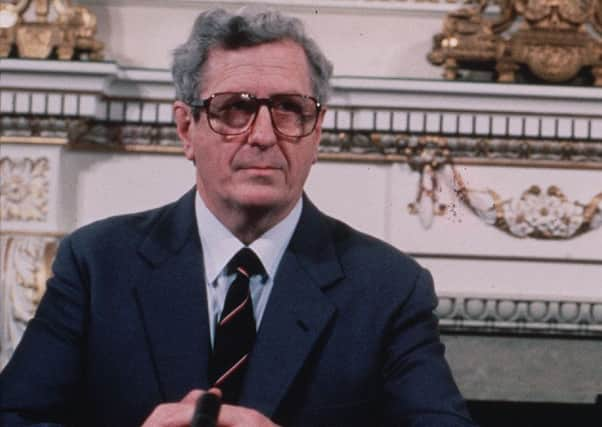Irish capital feared loyalist bomb


In a meeting with then Northern Ireland Secretary of State Tom King just three months after the accord, Mr FitzGerald said people in the Irish capital were as worried as people north of the border.
“There was also a fear in Dublin of loyalist bombs and though our present information was that the loyalist paramilitaries were not yet ready to do anything big, we had to do what we could to minimise the dangers,” he said.
Advertisement
Hide AdAdvertisement
Hide AdMr King said he had been “rocked on his heels” by the unionist backlash to the agreement, signed the previous November, notes of the February meeting just declassified under the 30-year rule reveal.
He had not expected DUP leader Ian Paisley to “capture and hijack” Ulster Unionist leader Jim Molyneaux along with “even ordinary moderate unionists”.
Secrecy around negotiations leading up to the deal was “a disastrous mistake”, he admitted.
“The unionists felt they had been treated like children and in reaction Ulster nationalism had reared its head,” Mr King said. Moderate unionists had been genuinely offended and people were now at the precipice...The situation was now more dangerous than it was in 1974.
Advertisement
Hide AdAdvertisement
Hide Ad“Then the average unionist sat on his hands and done nothing, thereby enabling the extremists to take over.
“Now the average unionist was very angry and prepared actively to oppose the agreement.”
He added: “Many decent unionists were looking over the precipice and were worried about what they saw,” he said. “But they had no leaders, no cohesion and the DUP was in disarray.”
Mr King also turned his ire on the SDLP’s then leader John Hume. Mr Hume “seemed happy to let the unionists suffer” but what was “particularly despicable” was his looking forward to a confrontation between the British government and unionists.